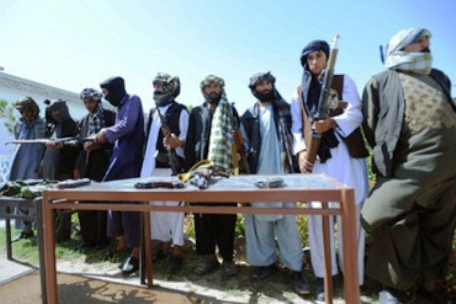Taliban to Intensify Rate of Negotiations

Yesterday, two pieces of news were broadcast, each of which can be interpreted differently. The first one was that less than 20 persons carried out a suicide attack in 6 locations of Kabul, an operation that began the previous night and continued till the morning. In the early hours of Tuesday afternoon, the attack of armed persons on the sensitive security centers began in Afghanistan and ended at 8 PM. The invaders took cover in a building close to foreign and public buildings like the US embassy and NATO’s command HQ, the president’s palace, the defense ministry and the security offices. The attack ended with the killing of the last armed attacker at 9 AM.
The second news was that the Qatari government accepted the Taliban opening an office in their country to pursue their political activities. The complementary or the third news was that the office opens in Qatar to restrict access to Islamabad’s intelligence services agents, and also Pakistan’s influence on this current. Furthermore, the relations between Pakistani agents and security organizations with extremist forces have been considered and questioned by the international community in the last few months-- especially since Osama bin Laden, the former leader of Al-Qaeda, was murdered by US forces in a Pakistani military zone.
All these changes can be interpreted as follows: at the beginning of any negotiation, the extremist current performs muscle-flexing actions to intensify the rate of negotiation and to promote its position. In fact, these are preludes for negotiations. Islamabad’s intelligent services agents are attempting to stabilize their position by having talks with the international community, Afghan officials, and others. They want to transmit a message that they can change the rules of the game if the plan is to ignore Pakistan’s intelligence services agents.
But it should be noted that all the changes in Afghanistan of this nature are made to promote a position in the second Bonn conference, or to show that the superregional forces seek to conclude security treaties or strategic contracts with Afghanistan. Namely, these measures may send this message to the Afghan officials that if the security contract is not concluded, while there are no superregional forces present, Afghans cannot provide security in Kabul. Certainly, the recent terrorist attacks were not the last ones in the two above-mentioned directions.

